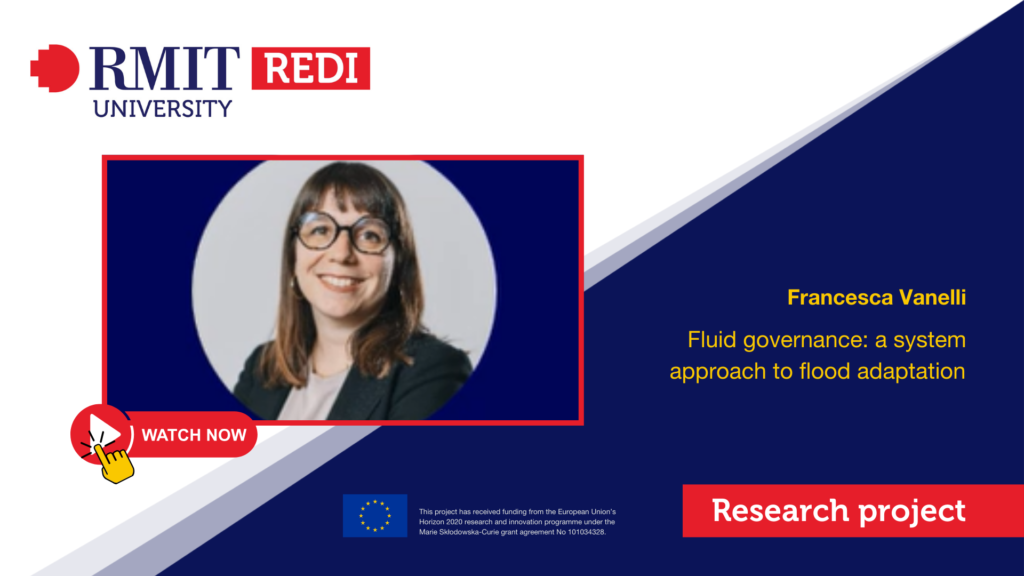With climate-induced and anthropogenic changes intensifying, various strategies to reduce flood risk and increase local adaptation capacity are adopted through Flood Risk Management mechanisms and Flood Risk Governance arrangements.
One of the main challenges of today’s flood management is the prevalence of a sectoral approach, primarily based on efficiency and cost-benefit criteria, and a reliance on engineering structural measures, which are spatially centralised, government-led, and resource-consuming. Nevertheless, the built environment resilience can be enhanced by distributing flood risk management strategies across the built environment as complementary to extensive protection schemes. Therefore, a system-based approach is needed, which accounts for measures across scale, types, locations, and stakeholders.
This research, part of the REDI program and in Cotutelle with Politecnico di Milano and RMIT, delves into the practice of urban and disaster governance, through a series of empirical and creative methodologies. It aims to test the conditions to have a diversified and distributed response to floods in the built environment, relying on different participatory components, multi-criteria analysis and storytelling.
Find out more: commonfloods.com
Watch a video about Francesca’s project:
